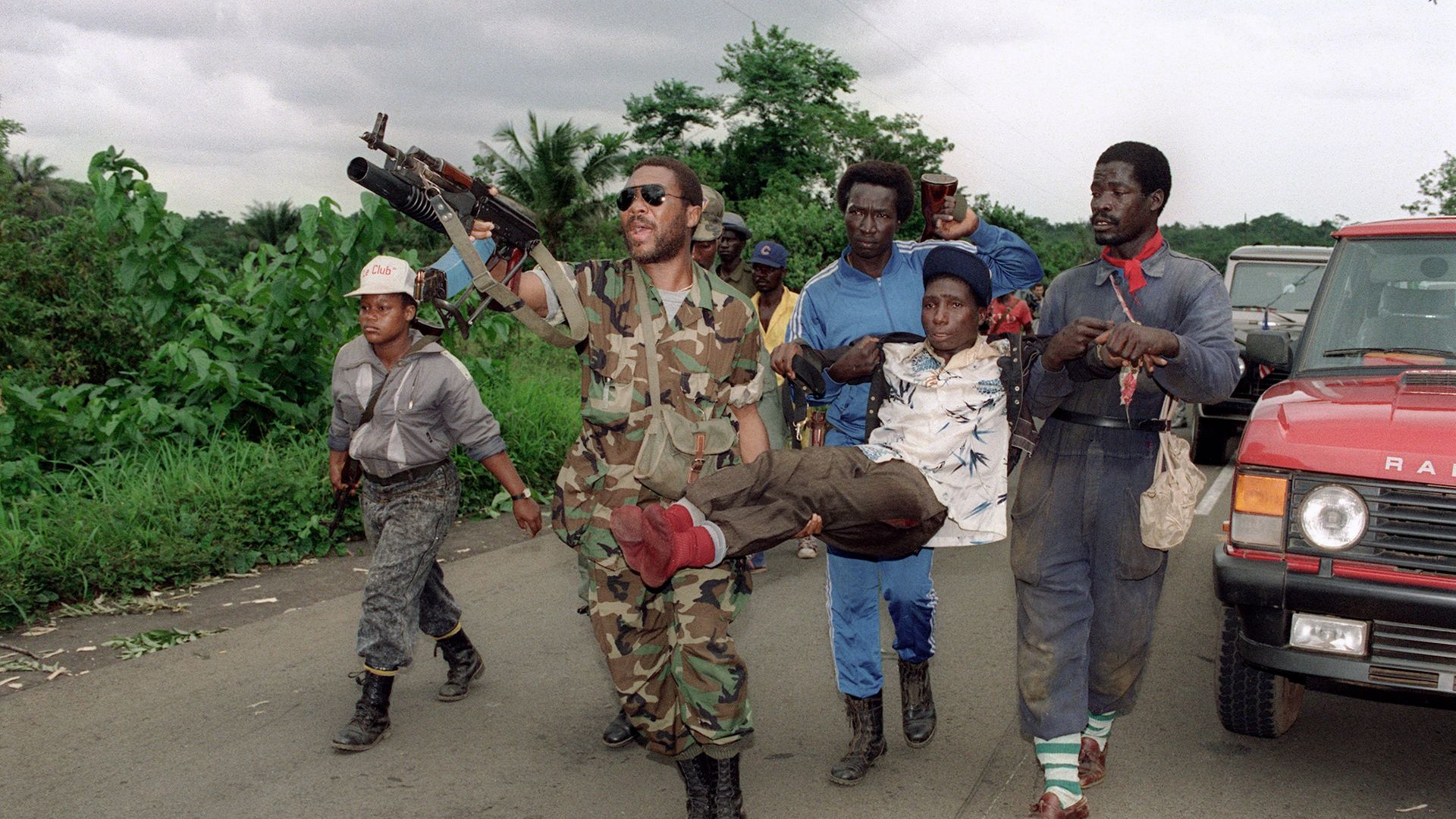
Paul Knott on the resilience and revival of the principal of international justice, the optimistic, liberal idea that refuses to die.
Ethnic nationalist regimes acquire power by convincing enough of their citizens to blame ‘other’ groups of people for their country’s problems. Such governments often culminate in murder, mayhem and genocide.
The precedents from history provide plenty of reasons to fear where the current resurgence of aggressive populists around the world could lead.
More hopefully, and less noisily, an opposing ideal is also enjoying a renaissance.
International justice seeks to counter humanity’s most violent impulses. Its modern incarnation was devised to prosecute Nazi war criminals in the aftermath of the Second World War.
Seventy years on from the Nuremburg Trials, the advocates of international law are still persevering, despite the eternally daunting challenges the system continues to face.
Recent decades have seen figures such as the former Serbian president Slobodan Milosevic and his blood-stained henchmen Ratko Mladic and Radovan Karadzic brought before the International Criminal Tribunal for the former Yugoslavia (ICTY) for the grotesque crimes they committed during the Yugoslav wars of the 1990s. They were joined by some of the perpetrators of the 1994 Rwandan genocide at the parallel International Criminal Tribunal for Rwanda (ICTR).
Perhaps most successfully of all, the former dictator of Liberia, Charles Taylor, who was the individual most responsible for the appalling atrocities that took place in his country and neighbouring Sierra Leone during the 1990s, was sentenced to 50 years in prison by the Special Court for Sierra Leone.
Bringing those criminals before this series of ad-hoc tribunals was, however, a frustratingly slow and painstaking process. It was patchy too, with some of the worst culprits continuing to evade justice.
In an attempt to improve and entrench the system, a majority of the international community was inspired to set-up a permanent International Criminal Court (the ICC) in 2002 to investigate and prosecute war crimes, genocide and crimes against humanity wherever they occurred.
While the establishment of the ICC has reduced the need to create a separate tribunal for every outbreak of atrocities (which is a good thing in an increasingly polarised world that currently struggles to agree about any collective course of action), it still faces many of the same challenges its forerunners did.
The difficulties include gathering evidence, protecting witnesses, arresting the indicted and getting them to court. This is far from easy when the international courts have no police or enforcement mechanism of their own and the perpetrators control the crime scene or are protected by their supporters. These problems are compounded by the refusal of some of the most powerful nations on earth, such as China and the United States, to participate in the ICC out of fear that it could be used against them.
Nonetheless, international justice for crimes against humanity is the bold, optimistic, liberal idea that refuses to die. Twenty-eight cases have been brought before the ICC and it has 17 people in detention. It is currently pursuing 13 full investigations and nine preliminary examinations of alleged crimes in places as diverse as Myanmar, Sudan, Afghanistan and Georgia.
The ICC’s ongoing examination of possible war crimes committed by UK citizens in Iraq and by Russia in Ukraine exemplifies it and other courts’ growing fearlessness in pursuing justice, regardless of pressure from highly influential countries.
To the intense annoyance of the White House, which was on the eve of hosting a visit by them, the special prosecutor appointed to investigate crimes committed during the Kosovo conflict dramatically indicted Kosovan president Hashim Thaci and speaker of parliament Kadri Veseli in June. The duo are charged with being “criminally responsible” for the murder of almost 100 people during their time as commanders of the Kosovo Liberation Army (KLA).
Equally encouragingly, more countries are engaging enthusiastically with international justice and even using their own courts to prosecute crimes against humanity, regardless of where they were committed.
After years of foot-dragging, France finally found and arrested earlier this year one of the alleged ringleaders of the Rwandan genocide, Félicien Kabuga, who had been living discretely near Paris. He will now stand trial at the Mechanism for International Criminal Tribunals (MICT) in Arusha, Tanzania, the permanent successor court to the ICTR.
And perhaps most poetically of all from a historical perspective, Germany has begun trials of two Syrians caught on its territory who are accused of committing torture and crimes against humanity on behalf of the Assad dictatorship.
For all the ups and downs of pursuing the world’s worst criminals, it should always be remembered that an imperfect international legal process is far better than none at all. By its very existence and implementation, international law offers hope to the victims and sends a message to persecuted people that their oppressors are not untouchable or all-powerful.
The more success the international courts have, the more they will deter potential perpetrators. Even those who have already committed appalling crimes and are currently evading capture have their freedom of movement curtailed for fear of arrest and must constantly look over their shoulders. However inadequate this may be, it is a form of punishment in itself.
Keeping the dream of international law alive offers millions of people hope for a better future during these dark times. As Martin Luther King famously said, “the arc of the moral universe is long, but it bends towards justice”.
Warning: Illegal string offset 'link_id' in /mnt/storage/stage/www/wp-includes/bookmark.php on line 357
Notice: Trying to get property 'link_id' of non-object in /mnt/storage/stage/www/wp-includes/bookmark.php on line 37






